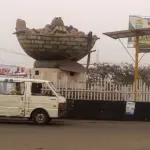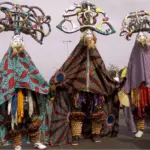
In this thought-provoking piece, distinguished Turkish poet Nurduran Duman delves into the transformative power of poetry in addressing fundamental questions of existence and fostering human interconnectedness. The piece highlights the vital role that poets play in shedding light on global challenges while advocating for a higher quality of life for all individuals, following the principles of Poetry for Development being championed by the Splendors of Dawn Poetry Foundation.
Duman emphasises the importance of literary translation in facilitating cross-cultural understanding and global harmony, underscoring the capacity of words to bridge divides.
The piece also delves into the concept of “Imece,” a Turkish tradition of collective effort, and its influence on the Poetry Soiree project in Istanbul. The initiative exemplifies how poetry can serve as a unifying force, bringing people from diverse backgrounds together and contributing to personal growth and healing.
“Peace at Home, Peace in the World.”
-Mustafa Kemal Atatürk
Everything Consists of Poetry
Why are we on this Earth? Why is the world like this? What are we doing? What am I doing? Who am I? What is “I”? These are the main questions of poetry.
And how about existence, space, and the universe? Where are they going? Everything consists of poetry, and poetry consists of everything, like energy. We are all travelers journeying on the universe-traveling Earth.
Scientists say that the universe is expanding forever. Therefore, we can say that everything is travelling. We can also say that plants don’t go anywhere from their roots. However, their roots travel underground, their branches in the sky, and their flowers, fruits, and oxygen move in living beings.
Light and Life are also travellers. They say that poets are like prophets; we poets carry the light in our bags wherever we go, even if we are only human beings trying to understand the journey of light and life.
Albert Einstein says: “A human being is a part of the whole, called by us “Universe,’ a part limited in time and space. He experiences himself, his thoughts and feelings as something separated from the rest — a kind of optical delusion of his consciousness.
“This delusion is a kind of prison for us, restricting us to our personal desires and to affection for a few persons nearest to us. Our task must be to free ourselves from this prison by widening our circle of compassion to embrace all living creatures and the whole of nature in its beauty. Nobody is able to achieve this completely, but the striving for such achievement is in itself a part of the liberation and a foundation for inner security.”

And I can add that, as a human being, a poet should be able to embrace the earth and the world on it, with all its joys and sorrows, by opening her arms 360 degrees. Our job is to sense, feel, experience, get inspired and recreate all again.
Everything is for humans. Everything should be for humans to live in a humane way and complete their lives with dignity. We all know that food, shelter, security, health, education, poetry, literature, art, and of course love and honour are basic human needs. When these basic needs of all humanity are met, life can become better. Every living thing, plants, animals, water, soil, and air deserves a quality life as well as humans. Improving the quality of human life also improves nature.
One of our most important tasks is to improve life and even existence. Our attitude, words and suggestions on this matter — if we remember the healing magic of poetry and the power of the word- are very important.
Poets say, “We poets are a big family.” Poetry says more: “Humanity is a big family.”
We, all of us, but especially poetry people who carry the magic of words, are especially responsible for shedding light on the dark days of this family and taking the bright days to the longest distances.
Choosing the Tools of Enlightenment
A poet constantly makes decisions. She may decide to use a punctuation mark after a moment’s thought or after days of contemplation. Decision-making is one of the serious tasks of a poet. As the one who holds the pen, she is the one who decides whether or not to use the tools of enlightenment.
Let us not forget that darkness exists where there is no light. The disappearance of that darkness comes from a matchstick, doesn’t it? We cannot overcome darkness with darkness because we don’t know that language. We can defeat darkness with the tools of light.
The poet should build her understanding of poetry on the basis of good-beautiful-true, that is, ethics-aesthetics-justice. She should choose to stay away from attitudes that complain but do not offer solutions, praise laziness, and try to glorify inactivity in various disguises. The poet’s job is to carry water to the mill of enlightenment, not to fan the winds of darkness.
The Mother’s Kiss
Most people have no idea about the power of poetry to change the world. It is useful to remember the “mother’s kiss” here. In Turkish culture, we have a long-lasting memory from childhood. (I think this exists in other cultures too.)
As a child, we naturally fall and hurt our knees. While we are busy crying or putting on a crying show, our mother comes and says, “Let me kiss your wound, it will heal.” She kisses it and we heal; we continue to run and play.
The Power of Words
The poet is the one who uses words with the knowledge of dimensions of human beings that humanity has not yet defined. Poets do a difficult job that requires effort, time, energy, experience, talent, creativity, and good intentions, putting together many components in the most accurate and creative way, constructing a magical design like weaving a carpet, building a house or a ship. It is a highly aesthetic and laborious work. Yet perhaps it is the most effective invention humanity has discovered. Therefore, poetry and even literary translation are essential for world peace.
If world peace is desired, every country should have a literary translation programme and every government should implement it. Translation is a kind of planting. You sow a product from one field to another and get a new yield that will continue to nourish in a different language forever. Translation is the harvest of two different cultures. When you translate a text into another language, you convey a new breath, a new culture, and a new perspective to that language. One world passes to another world. And when you read and understand the other one’s story -which is usually very similar to yours- they can no longer be a stranger or a “monster” to you, not someone that your government has to attack… With translation, we can understand, forgive, and love each other. It is a gift of life to learn and grow up.
In Part 2, you read about poetry and its role in the recent earthquakes that hit Turkiye.
Follow the AkweyaTV channel on WhatsApp: https://whatsapp.com/channel/0029Va7m7dvJuyA7h5XMc22i















